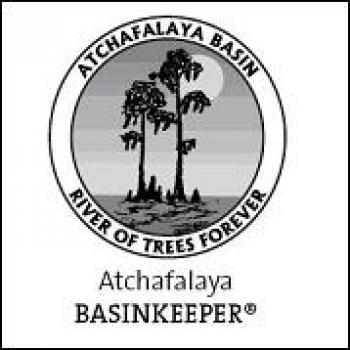
Atchafalaya Basinkeeper Dean Wilson statement:
Atchafalaya Basinkeeper (ABK) and Louisiana Crawfish Producers Association-West are concerned about the direction that The Nature Conservancy (TNC), the Louisiana Department of Natural Resources (LDNR), Shell Oil, large Atchafalaya Basin land owners and the U.S. Fish and Wildlife Service (USFWS) are moving in to implement the East Grand Lake Project.
The East Grand Lake Project was proposed by LDNR many years ago. The USFWS acknowledged at the time that it would have filled many acres of what they called “marginal wetlands.” Atchafalaya Basinkeeper, Sierra Club, the Louisiana Crawfish Producers Association—west (LCPA—West), and others fully opposed the project at that time. “Marginal wetlands” was a term invented by an employee of the USFWS to describe less productive swamps and make the project more palatable. We saw the project as yet another attempt by large landowners in the Basin to use public funds to transform swamplands into uplands and we did what we could to kill the project. Many Basin landowners support projects like this one because transforming swamplands into uplands will decrease government regulations, increase the value of the land, and end their feuds with fishermen over access. Because of U.S. Corps of Engineers (USACE) projects in the Mississippi River and the Atchafalaya Basin as well as thousands of miles of oil canals built by oil companies, including Shell, we have already lost about ¾ of the swampland in the Atchafalaya Basin and many would like to see the remaining ¼ disappear.
At the time, ABK and the commercial fishermen’s group LCPA-West presented LDNR with a Memorandum of Understanding (MOU) that would have guaranteed that future projects are designed such that that the Basin’s wetlands would be protected for generations to come. LDNR representatives refused sign it, but nevertheless assured us that the East Grand Lake Project would not be implemented.
The partnership created to develop this project is deeply troublesome. As we are seeing with Bayou Postillion and many other cases, some Basin landowners wield enormous influence over LDNR, USFWS, and the Corps of Engineers. The USFWS is unfortunately on record supporting projects that would have converted swamplands into uplands and Shell has an objectively abysmal environmental record in the Basin.
In the past, TNC has taken actions to benefit its allies and donors at the expense of the environment. In 2007, the Louisiana Society of American Foresters, listing Rick Jacob (a TNC employee) as its chair, sent a letter to Wal-Mart, misinforming the company about the cypress deforestation situation in Louisiana and asking them to rescind its decision not to buy unsustainable cypress mulch harvested from Louisiana. TNC was the only environmental or conservation group in Louisiana that, when offered, refused to even look at the facts related to the mulch industry and its devastation of our wetland cypress forests. Earlier this year, TNC sent comments in support of the delisting of the Louisiana black bear as a threated species despite massive threats to black bear critical habitat, lack of achieving the recovery goals and only a very small increase of Louisiana black bear population since the species was listed as threatened. So far, ABK’s attempts to work with TNC to show them problems related with sediments in the Bayou Sorrel area have gone nowhere.
The Bayou Sorrel area in the Atchafalaya Basin is extremely productive and provides critical habitat for a multitude of aquatic bird species, but this area is also severely affected by excessive sedimentation.
Considering the future of what remains of the Atchafalaya Basin’s swamps, for what we love and want to protect and pass on to our children, we do not see anything to celebrate in TNC’s press release of 12.08.2015 regarding the MOU on Bayou Sorrel, at least not yet. Let’s hope that TNC will do the right thing, but looking at the history of everyone involved and TNC and LDNR’s refusal to include other groups in this MOU, it does not look too promising.
Announcing this collaboration to “Protect and Restore the Atchafalaya Basin” with a suspect assemblage of partners under a bright and hopeful banner may be a sad attempt to get public support for projects that will fill valuable swamps in the Atchafalaya Basin.
- Log in to post comments
